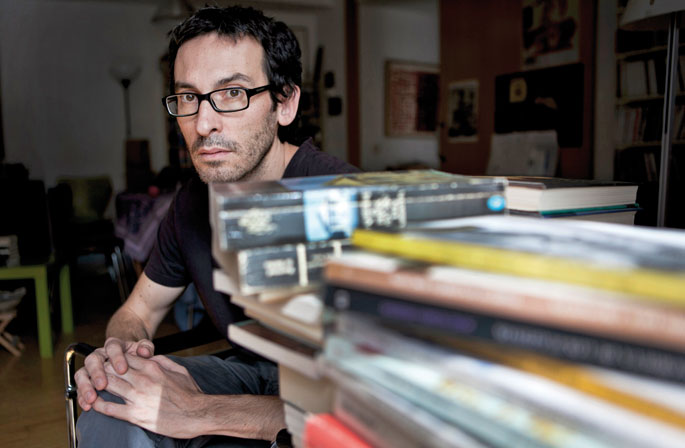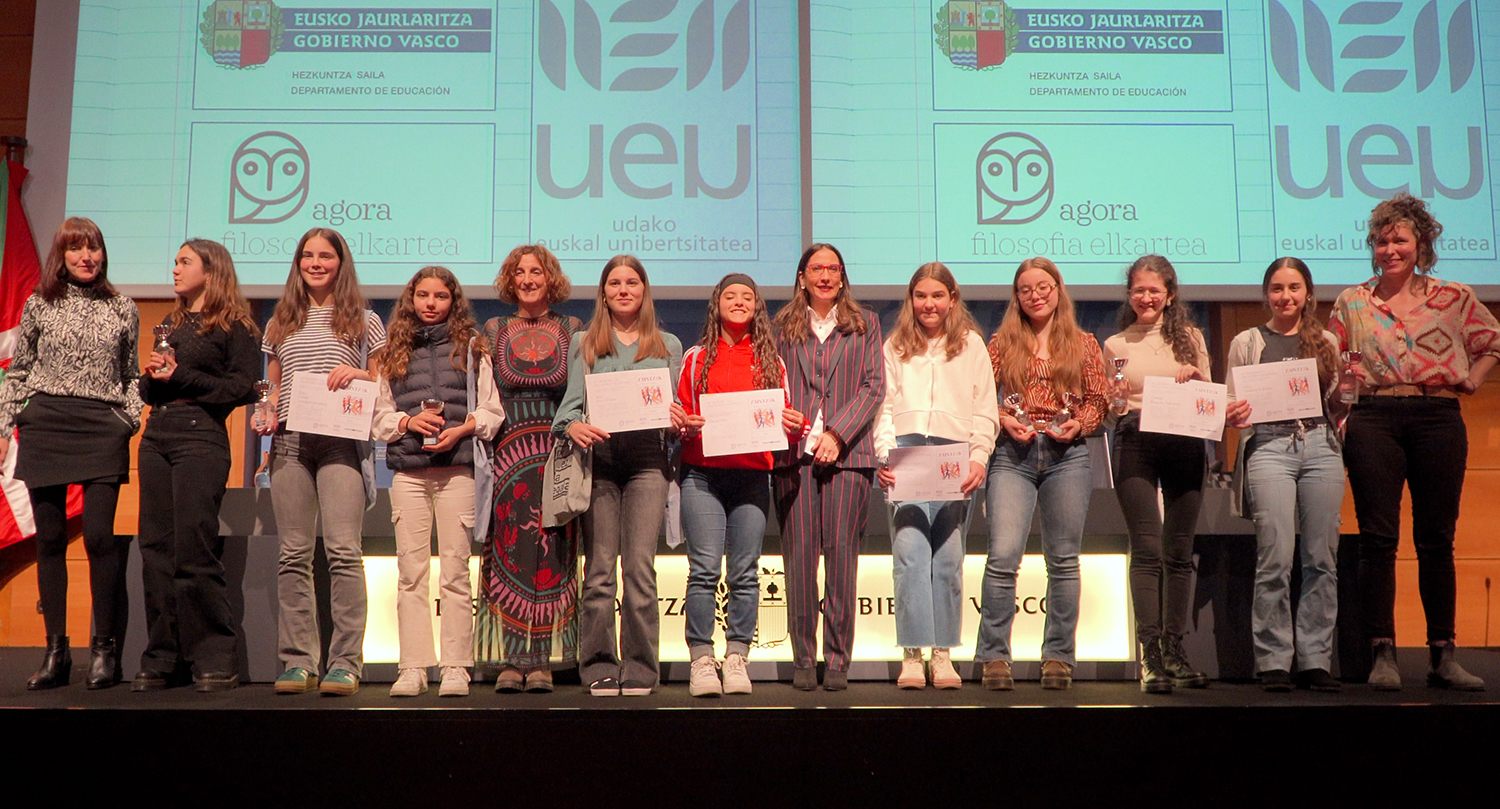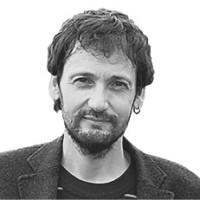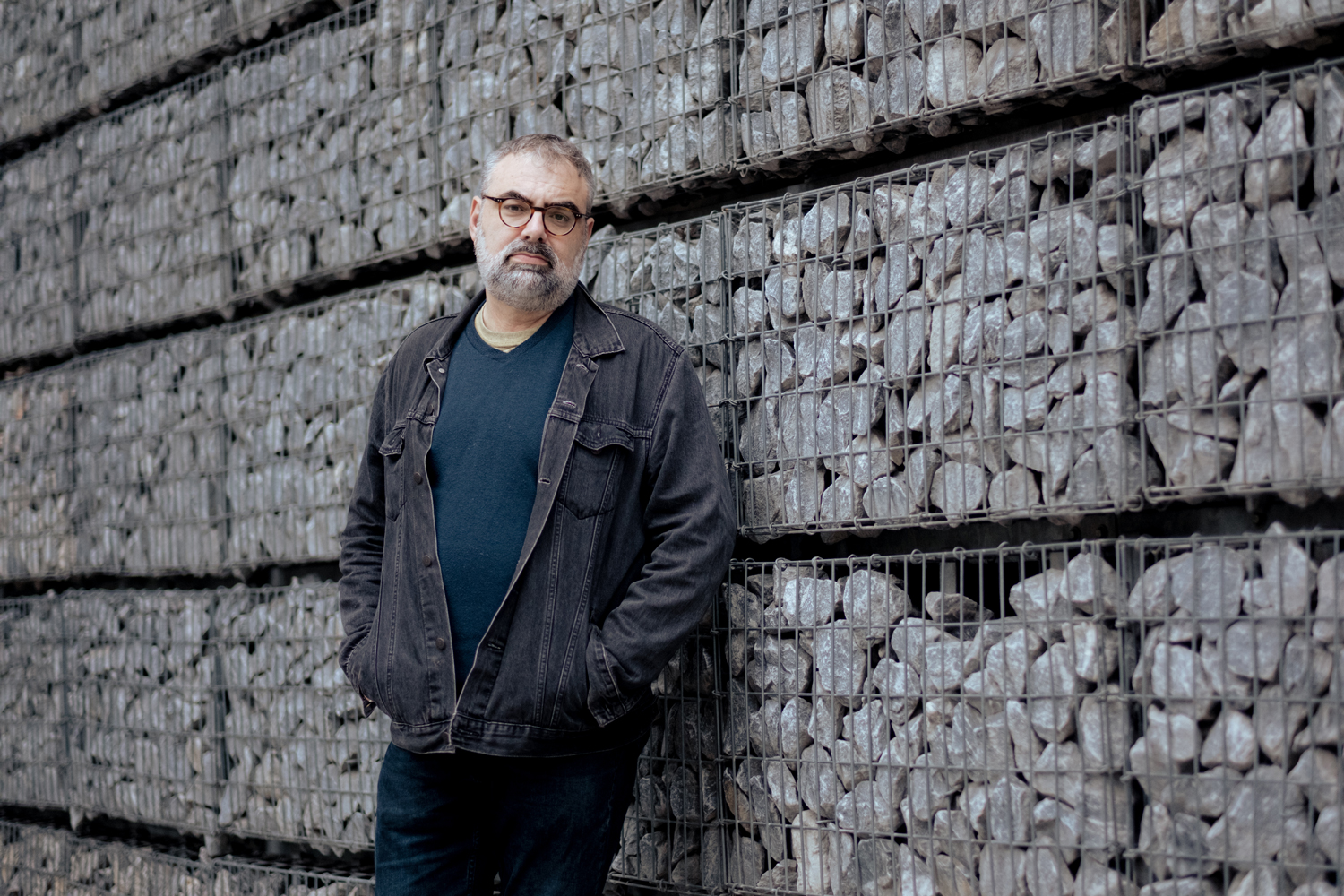"Our model was to live like an idiot with a full pocket"
- Sociologist. Professor at the Complutense University of Madrid. One of the founders of the Ladinamo collective. He has written two attempts: Sociophobia, which analyzes political change in digital utopia; and Canalla capitalism, a personal story about capitalism through literature.

There are no citizens anymore, we are consumers.
And the shopping list defines us. Our entire social life depends on trade relations. It is true that almost all societies have known trade, but as a reality that has a very limited weight in life among individuals. However, in recent decades, sophisticated forms of consumption have appeared that structure our way of being: we are the result of a set of variable priorities.
Are communication technologies the paradigm of this?
They're the most complete kind of consumerism. They offer us opportunities that don't compromise us. Other options compromise us: relationships that cannot be abandoned whenever you want, family, friends, associations, trade unions, political parties; from a hedonistic point of view ask you for undesirable processes, negotiations, lights and shadows, gray. And that disappears in the area of consumption: what I prefer, when I prefer, and how I prefer.
20. At the origin of the great conflicts of the twentieth century, you place the superiority of market competition, and the excess power that has been given to the economy.
They are the result of a series of tensions that accumulated in the 19th century. The nineteenth century, in which the development of capitalist relations took place, lived peacefully, in Europe at least the victory of the economy left behind the political and religious conflicts of previous centuries. Clearly, it was the consequence of the expulsion of conflicts to the periphery, to the colonies. But rather than disappear, social, political and economic conflicts were gathering up, and a terrible crisis erupted that was the result of the impotence of the ideal of the free market.
The free market is neither good nor bad, it is impossible.
It's incompatible with our lives. The truth is that it has never existed, the market has always needed gigantic expulsions from the state, a savage social orthopedics, is a utopia. And it was some happy moments of the 20th century that limited this utopia, developing a state of well-being.
What is the relationship between capitalist organization and slavery?
Paid work is a historic novelty, people have never lived this way. When markets began to appear, the models applied in the new fields of work came from slavery: it was unskilled work with repetitive and fragmented tasks. Because the opposite was skilled work, that of craftsmen, that of unions, hard work, but linked to great autonomy. It's not the same thing to be a slave as a wage worker, but there's a straight line from one side to the other.
Capitalism has destroyed many things, including traditional social relations.
The thing is that we recover them: traditional social relations are full of domination, sexism, superstition. But we need to rebuild a denser connection than the mass market offers us, at least from a liberating perspective. However, mass societies have not eliminated social ties equally. More egalitarian societies have stronger social ties. We have more room for manoeuvre than we think.
Time of crisis, in the words of Gramsci: the old has not died, the new is not born.
But in many cases, normality is the crisis. The question is whether we will be able to get out of the crisis. And if we go out, we shouldn't believe that we'll have a lot of opportunities in front of us. The options are now deciding, it is we who have to make the decisions that lead us in one direction or another. It is at stake to close the crisis above, maintaining the benefits of the elites, or to help something new emerge.
Apathy, distancing, skepticism with processes of social change.
The greatest triumph of neoliberalism, combined with a different distribution of wealth, is, of course, the dismantling of society, the destruction of civil society. It is no coincidence: the most competitive countries, the ones that are best able to cope with the crisis, Finland, Sweden, Norway, Denmark, are the countries with the most union membership in the world, above 70%. Otherwise we do not have the resources to intervene, to act, which is a very difficult alternative.
And we still want to mimic the life of the elites.
Since the 1970s, millions of working-class people began to support projects of addiction to the economic elites, which opposed their material benefits. Dressing up, eating, traveling and talking like an idiot with a full pocket stopped being ridiculous and became our model of life. In England and other countries there is a sense of failure. We, on the other hand, regard it as a natural development, and that is more demobilising than failure.
“Kapitalismoaren historia pertsonal bat idatzi dut, literaturaren bitartez. Kapitalismoaren historia azaltzeko baino, kapitalismoaren historia pentsatzeko balio izan dit literaturak. Moby Dick ekintzaile ero baten istorioa da, erorialdian langile prekario talde bat herrestan daramana. Gauaren muturrerainoko bidaia liburuko protagonistak biolentzia kolonialaren, esklabismoaren eta lan diziplinaren arteko jarraipena ezagutzen du Afrikan. Ilunpeen bihotzean eleberria ez da propio kolonialismoaren krimenei buruzkoa, alienazioaren ingurukoa baizik. Azkenerako, historia, bizitza eta fikzioa elkartzen diren eremu zingiratsu bihurtu zait liburua.”
Une delikatua igarotzen ari den zure lagun minak Taylor Swiften kontzertura joatea proposatu dizu, baina kide zaren elkarte ekologistak elkarretaratzea deitu du, abeslariak sortuko duen kutsadura salatzeko; nora joango zara? Dilema etiko horri erantzun diote gazteek, baita... [+]
Epistemology, or theory of knowledge, is one of the main areas of philosophy, and throughout history there have been important debates about the limits and bases of our knowledge. Within this we find two powerful corridors that propose different ways of accessing knowledge: The... [+]
Entrepreneurship is fashionable. The concept has gained strength and has spread far beyond economic vocabulary. Just do it: do it no more. But let us not forget: the slogan comes from the propaganda world. Is the disguise of the word being active buyers? Today's entrepreneurs are... [+]
Isn't it a sign of pride to look at the people in front of me as if they weren't people? Yes, of course yes. But how can we expect others to understand? Understand, observe, look. Does wanting to understand others not require this proud attitude? Knowing what it is to be a person,... [+]
Are we running out of shame? This is the diagnosis of several authors today. Is there no longer a look that can embarrass us? Another thing that Jean-Paul Sartre described in 1943 around shame is that on the other side of the lock, with the eye stuck in the key slot, a person is... [+]
Predicting the end of anything has become fashionable. The end of the human being, ideologies, community, authority, philosophy, or democracy. Are they labels full of sensationalism?
Maybe it was Francis Fukuyama who started that final fashion. After the collapse of the Berlin... [+]
The most promising futures are more concerned about the future than the long-term ones. It's the CCCLXIX law of life. It seems like a mouthpiece, but the laws of life I don't write them, but life itself.
That law, like all authentic laws, has exceptions, but what exceptions are,... [+]
Today there are many apps to buy friends: The best known are AlquiFriend and Ameego, which seem to work very well, especially in the big cities of the United States. They have about 600,000 users. Pay 120 dollars to someone and for a couple of hours you go to the restaurant... [+]
The body issue has gained weight in current speeches, it appears to us in many ways. However, these are relatively recent debates in which the body has been quite marginalized in the history of Western thought compared to other times.
To me the truth is that they help me apply... [+]
















